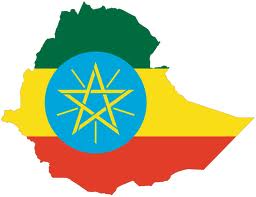Ethiopia has a water management problem, not a water problem, says Simon Langan, Senior Researcher and Head Office for the Nile Basin and East Africa at the International Water Management Institute.
In an interview with The Reporter, Langan said that, although people in the highlands may experience physical water shortages, most people in Ethiopia live in close proximity to water sources. According to Langan, implementing mechanisms that the government and the public employ for effective water management is not simple. “The secret is storing and economical use of that water throughout the season,” he said. He pointed out that farmers, who make up 85% of the country, need to be able to save rainfall for use as well as cultivate other supplementary water resources in order to mitigate the problem.Langan advocates using local knowledge to solve problems. “To build on their experience is something effective we believe. The farmers can say, oh, that is something I know or am not familiar with. We therefore value their involvement and full participation.”
He argues that developing water resources should be top of Ethiopia’s agenda and underlined that very good policies need to be made and implemented. “When 60% of the GDP is from domestic products and the small scale farming, water is compulsory…. it is all about water, and developing and managing its fundamental water resources.”






